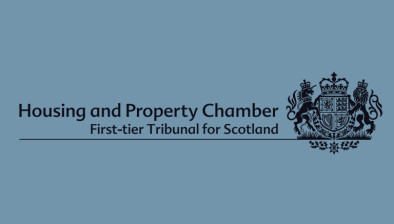Housing tribunal resumes publication of tenancy deposit case management discussions

The First-tier Tribunal for Scotland (Housing and Property Chamber) has resumed issuing written decisions in Case Management Discussions following the resumption of proceedings from July 9.
Rescheduled CMDs are currently taking place by teleconference to allow all parties, representatives, and tribunal personnel to participate remotely. All private rented sector civil proceedings and eviction cases are proceeding to CMDs in the first instance during this time.
Summaries of some of the new published decisions regarding tenancy deposit issues are to be found below.
Tenancy deposit application dismissed after tenants fail to attend teleconference
Two tenants who sought the return of their tenancy deposits and originally had a CMD scheduled for March 2020, have had their application dismissed after they failed to join the teleconference CMD.
The rescheduled date was intimated to the applicants, Alan Fowler and Nina Ukkonen, by email a month in advance. After a 15 minute delay the respondent landlord, Ronald MacDonald, asked the Tribunal to proceed in their absence, explaining that he had taken a day off work to attend the CMD and had prepared a substantive defence to the application.
The Tribunal was satisfied that the applicants had wilfully failed to attend the CMD, and concluded in its decision: “The Applicants had not indicated that they would not attend the Case Management Discussion, and did not lodge written submissions in lieu of their attendance. The order sought by the Applicants required further explanation. The Respondent had indicated that he had a defence to the application. The Tribunal considered that the Applicants’ failure to attend the Case Management Discussion meant that it could not deal with proceedings justly and fairly, and accordingly dismissed the application.”
Letting agents ordered to return ‘deposit’ for lease never entered into
A woman who paid a deposit to a letting agency in advance of entering into a tenancy agreement but later decided not to proceed with it has obtained a payment order for the same amount.
The applicant, H, emailed the respondent, Lets Direct (Southside) Ltd, in August 2019 expressing an interest in renting a studio flat in Glasgow from October. The respondent asked for the tenancy deposit in advance in order to reserve the room. The applicant paid the amount of one month’s rent as a deposit without having viewed the property.
Following negotiation regarding the date of entry, during which time a full refund was offered by the respondent if the applicant changed her mind, the applicant decided not to proceed with the tenancy. Upon requesting the return of her deposit, the respondent stated that the deposit was not refundable.
In its decision, the Tribunal said: “The respondents have no right in law to retain the deposit paid by the applicant. In the respondent’s own words, the sums paid are refundable. It is arguable that the words employed by the respondents in their emails of 9 and 11 September 2019 constitute an offence under parts 7 and 8 of the Rent (Scotland ) Act 1988.”
Hotel room tenant recovers deposit
A tenant who stayed in a hotel whilst working away from home has obtained an order for payment for the deposit he paid for the lease of a hotel room.
The applicant, Jamie Lingard, stayed in a property in Ayrshire owned by the respondent, Steve McKnight, from 6 November 2019 until 27 November 2019. He paid a deposit of £300 and was provided with a blank lease document he was asked not to sign. The deposit was not lodged in a tenancy deposit scheme.
The accommodation was located in a building next to a hotel owned by the respondent which was undergoing refurbishment. It consisted of a room and bathroom along with a kettle, toaster, and microwave, and the building contained other similar rooms at least one of which was in occupation.
The applicant believed that the Tenancy Deposits (Scotland) Regulations 2011 applied due to the provision of a lease document and the payment of a deposit, neither of which were typical practice for a stay in a hotel. The respondent was not represented at the CMD.
In its decision, the Tribunal, concluding that the property was not excluded from being a relevant tenancy, said: “Although the accommodation occupied by the Applicant is part of (or co-located with) a hotel, the Applicant was not staying there as part of a holiday. He was working locally and lived at the property during the contract. The Applicant was unable to confirm whether the Respondent resided at the property, the adjoining hotel, or somewhere else altogether. None of the other exclusions are relevant to the application.”
The Tribunal continued: “The nature of the Applicant’s tenancy or occupancy arrangement is not completely clear. It was not a private residential tenancy since, by the Applicant’s own admission, it was not his only or principal home. However, the 2011 Regulations are not restricted to tenancies under this and earlier legislation but appear to have a much wider application.”
On whether a hotel room could be a “house” for the relevant purposes, it said: “In the case Uratemp Ventures Limited v Collins (2001) the House of Lords held that a room in a hotel, with no cooking facilities, could be a separate dwelling, if it was the occupiers home, or one of them. This was also the view of the Land Valuation Appeal Court in the case of Assessor for Lothian Region v Viewpoint Housing Association Ltd (1983) which held that the activities of sleeping, sitting and eating need not be present before a place could be a separate dwellinghouse.”
For these reasons, a payment order was made for the sum of the deposit.







